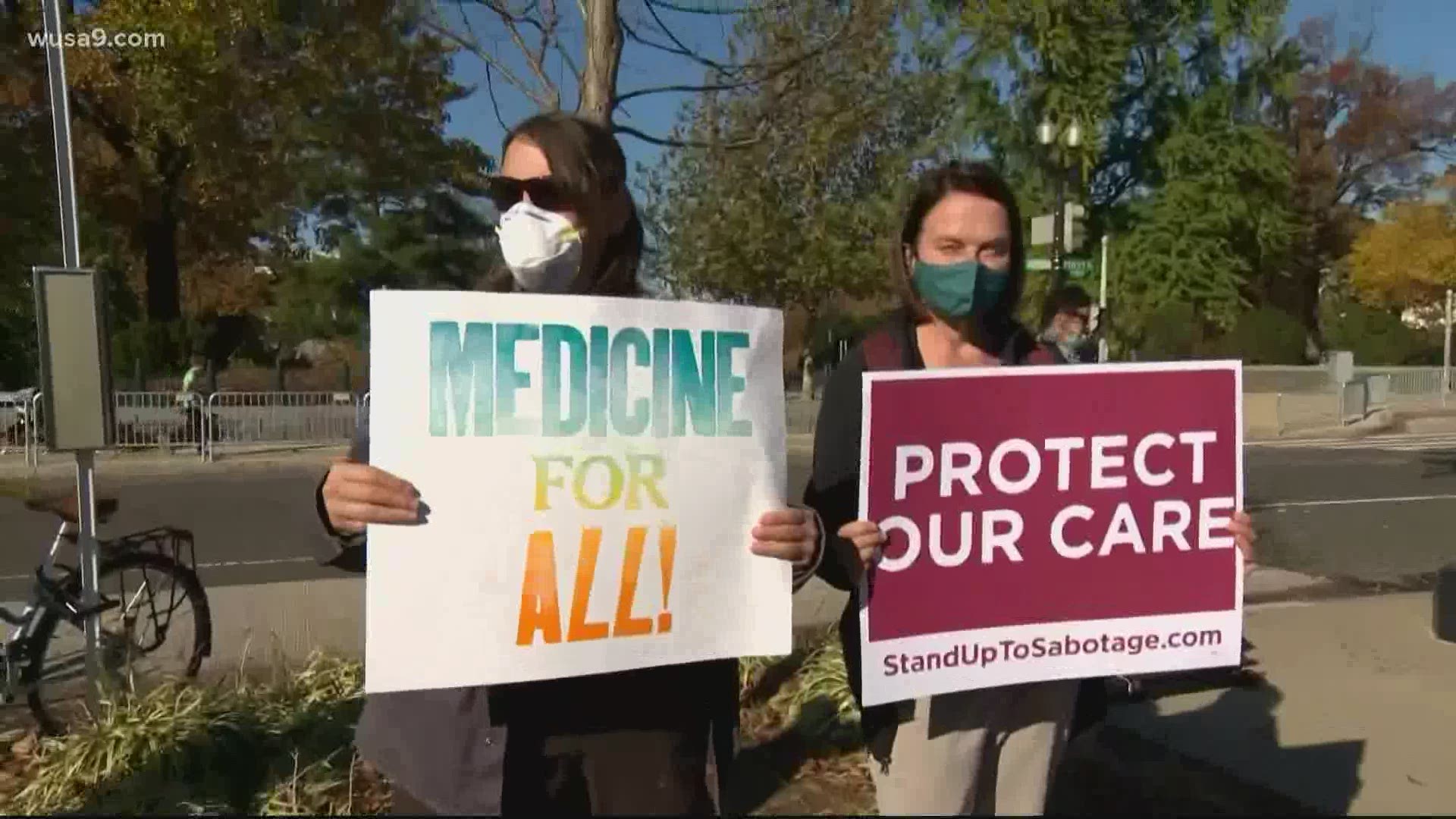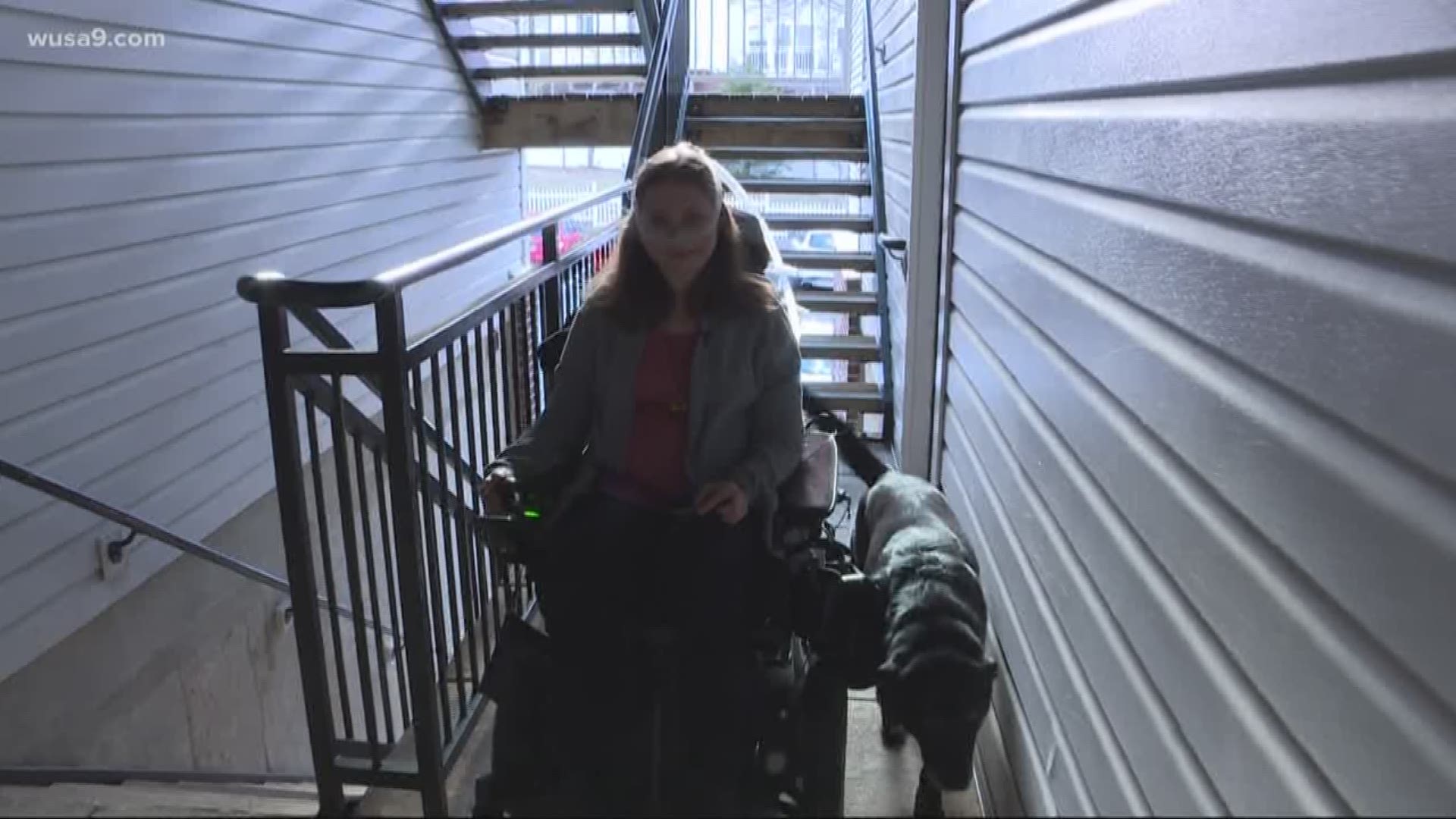WASHINGTON — The Supreme Court heard oral arguments Tuesday on the legality of the Affordable Care Act, which caused concern for many who rely on the ACA for health insurance.
A team led by Republicans in Texas is arguing that the individual mandate to get health insurance is unconstitutional and that the entire act should be struck down now that Congress zeroed out the penalty in 2017. Defendants of the ACA argue that Congress' change modified the law to allow for greater individual choice.
The Urban Institute estimates that if the Supreme Court votes to overturn the act, 21 million Americans will lose their health insurance.
"Literally, if they overturn the ACA, it could be a death sentence for me, so my life is literally dependent on the ACA right now," Laura Halvorson said.
Halvorson has muscular dystrophy and spends her days in a wheelchair hooked up to a ventilator. She gained health coverage through the ACA back in 2016 after her illness forced her to stop teaching five years earlier in 2011.
“That covers my breathing machine that you see on my face right now, covers my power wheelchair, all my doctor appointments. It’s literally keeping me alive,” she said.
Halvorson said her insurance provider gets billed nearly $1,000 per ventilator each month — and she has to keep two ventilators in her home in case one stops working.
She used to live in Fairfax, Virginia, but she said the uncertainty caused by the Department of Justice filing in federal court to declare the ACA unconstitutional last year caused her premiums to shoot up. And, Amazon coming to town pushed up her rent. So, she moved home to Texas in November 2019.
"The only way I could qualify for Medicaid is spending down all my income. That wouldn’t leave me money for rent, so I’d have to go in a nursing home, which during a pandemic …. being someone with respiratory failure, I would not survive getting COVID," Halvorson said.
Arlington-based nurse and metastatic breast cancer survivor, Caroline Corum, said repealing Obamacare could force a lot of women like her, who need continuous treatment, to make tough choices.
“Is it housing or is it health care?" Corum said. "Is it basically going into bankruptcy? which will happen very quickly going without care.”
She and Halvorson said if they have to go back to pre-ACA coverage, they could face high premiums, annual limits, and lifetime coverage caps that could make it hard to get by.
“It’s not perfect," Corum said of the Affordable Care Act. "The plans are expensive, and they have really large out of pocket costs, but at least it’s some coverage for access to health care.”
Opponents say it's more than imperfect, though. Multiple articles in the National Library of Medicine say some Americans lost coverage when the ACA took effect, others saw higher premiums, and still, others believe it's a government overstep.
“There’s just so many things the ACA does to help people live and get affordable health care, so it’s just very scary if it’s overturned," Halvorson said.
One of the "things" Halvorson said that the ACA does is prevent insurance providers from denying coverage to people with preexisting conditions. COVID has left thousands of Americans with lingering symptoms that could qualify as preexisting conditions and consequently preclude them from health insurance without the ACA.
According to CBS, the Supreme Court justices are expected to hand down their decision by the end of June.


